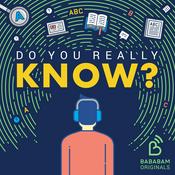99 episodes

The Founding of Regina Laudis Abbey: A Story Made for Hollywood
23/12/2025 | 22 mins.
Mother Benedict Duss hid from the Nazis in her French Benedictine monastery during World War II. After General Patton's Third Army liberated her abbey she pledged to return to the United States to establish a Benedictine monastery to pray for and bless her homeland. Through the assistance of two future popes — both of whom would eventually be canonized — and a number of other providential happenstances, the Abbey of Regina Laudis was finally established in Bethlehem, Connecticut. The story of the founding eventually became the basis for the acclaimed movie Come To The Stable, which was nominated for eight Oscars, including for the screenplay written by Clare Booth Luce. Regina Laudis has been the home of Mother Dolores Hart since she left a budding Hollywood acting career in the 1960s, and it was the place where the actress Patricia Neal found solace and healing after her tumultuous life.

Fr. Aloysius Schmitt, Hero of Pearl Harbor
11/12/2025 | 15 mins.
Father Aloysius Schmitt was a Navy Chaplain assigned to the USS Oklahoma at the outset of World War II. He had just finished the 7 a.m. Mass on the Second Sunday of Advent when the first torpedoes from the surprise Japanese attack struck the ship. He aided men to escape, at the cost of his own life during the attack on Pearl Harbor. He was the first chaplain to die in World War II.

Ven. Henriette Delille
25/11/2025 | 16 mins.
Venerable Henriette Delille overcame great opposition to establish the second religious community for black women in the United States. She was an octroon born in New Orleans in 1813. Her mother was a kept woman within the plaçage system. After Henriette learned the truth about marriage she became implacably opposed to the plaçage system, and she rejected the trajectory of her life. In her 20s she started the second religious community for black women, but it took years for the authorities to approve her religious order. Since its founding in the 1840s the community has opened the first Catholic nursing home for the elderly in the United States, as well as one of the oldest Black Catholic high schools in the USA. Henriette Delille died in 1862. Her cause for canonization opened in 1988, and she was declared venerable in 2010.

Pope Night in the American Colonies
05/11/2025 | 17 mins.
"Pope Night" was the American version of the British "Guy Fawkes Night," the annual commemoration of the Gunpowder Plot. The night of mischief and mayhem and anti-Catholic demonstrations came over with sailors and grew to include demonstrations up and down the New England coast. It was ended by George Washington, who had an affinity for Catholics — and who needed Catholic support in the war against Great Britain

The Haunting at Wizard Clip
28/10/2025 | 21 mins.
In the late 1700s, Adam Livingston, who was Lutheran, moved with his family to a farm near Smithfield, Virginia. After a stranger, who turned out to be Catholic, died in his home, manifestations of a demonic infestation of their home began to disturb his family. The sound of invisible horses galloping loudly, crockery flying off shelves, a clipping sound accompanied by articles of clothing being damaged, and other disturbing occurrences. The clipping is what gave the area the name "Wizard Clip." The manifestations continued until two Catholic priests, including Father Demetrius "Prince" Gallitzin, intervened to exorcise the demons. Livingston's family became Catholic as a result. Following their conversion, a consoling heavenly voice instructed the Livingston family in the faith, led them in prayer, and inspired Livingston to do good things for others in need. When the Livingstons moved back to Pennsylvania in 1802, Adam Livingston donated 34 acres to the Catholic Church, and that land is, since 1978, the Priestfield retreat center for priests in modern day Middleway, West Virginia.
More Education podcasts
Trending Education podcasts
About American Catholic History
Listen to American Catholic History, The Mel Robbins Podcast and many other podcasts from around the world with the radio.net app

Get the free radio.net app
- Stations and podcasts to bookmark
- Stream via Wi-Fi or Bluetooth
- Supports Carplay & Android Auto
- Many other app features
Get the free radio.net app
- Stations and podcasts to bookmark
- Stream via Wi-Fi or Bluetooth
- Supports Carplay & Android Auto
- Many other app features


American Catholic History
download the app,
start listening.


































